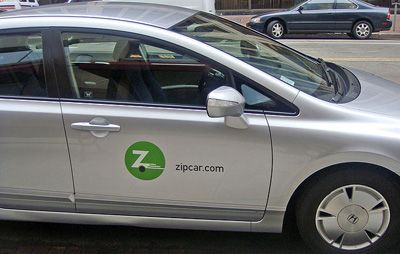 The car sharing company known as Zipcar Inc. was denied a motion to dismiss a potential $5 million class action lawsuit that alleges the short term car rental service illegally forces customers to pay unreasonable late fees.
The car sharing company known as Zipcar Inc. was denied a motion to dismiss a potential $5 million class action lawsuit that alleges the short term car rental service illegally forces customers to pay unreasonable late fees.
Lead plaintiff Gabriela Bayol filed the Zipcar class action lawsuit after claiming that the $150 late fee bears no reasonable relation to what Zipcar is actually losing in damages if a car is not returned on time. The Zipcar late fees lawsuit alleges that the car sharing company collected more than $2.8 million in late fees between May 2010 and May 2014.
Defendant Zipcar asked the court to dismiss the proposed late fee class action lawsuit claiming that the case amounted to less than $3 million so it was out of the court’s jurisdiction, but U.S. District Judge Thelton E. Henderson rejected that argument based on Bayol’s amendment to the Zipcar class action lawsuit.
Plaintiff Bayol’s proposed amended complaint includes punitive as well as compensatory damages and more than $1 million in attorneys’ fees. Considering all this, Bayol alleges the actual amount in question is more than $7 million, which is above the requirement for the original jurisdiction.
The Zipcar late fee class action lawsuit was initially filed after the plaintiff and former Zipcar member Bayol used the car sharing service by complying with the rental membership agreement. According to Bayol, members are required to pay a fee of $50 and an additional $150 for returning a car late. The plaintiff claims that as a member of Zipcar she has returned a car back late and paid the late fees accordingly.
However, the plaintiff claims that the fees imposed by Zipcar violate California consumer protection statues including the Consumer Legal Remedies Act because it sets liquidated damages in a consumer contract. According to the Zipcar late fees class action lawsuit, the car sharing company did not conduct a “reasonable endeavor to estimate its actual damages” and Bayol claims that such fees are “unconscionable and unfair, because they are included in a contract of adhesion and are unreasonably favorable to Zipcar.”
Under the Consumer Legal Remedies Act, plaintiffs are allowed actual damages, punitive damages, restitution and injunctive relief. By filing the Zipcar class action lawsuit, Bayol is seeking a permanent injunction against Zipcar’s late fee policy, in addition to financial restitution.
If the Zipcar class action lawsuit is approved, potential Class Members would include all California residents who subscribed to and/or are subscribing to Zipcar’s car rental services pursuant to the membership agreement, or any successor agreement thereto, and who paid one or more late fees imposed by Zipcar pursuant to the membership agreement.
Bayol is represented by Scott A. Bursor, L. Timothy Fisher, Annick M. Persinger and Yeremey Krivoshey of Bursor & Fisher PA.
The Zipcar Late Fees Class Action Lawsuit is Bayol v. Zipcar Inc., Case No. 3:14-cv-02483-TEH, in the U.S. District Court for the Northern District of California.
ATTORNEY ADVERTISING
Top Class Actions is a Proud Member of the American Bar Association
LEGAL INFORMATION IS NOT LEGAL ADVICE
Top Class Actions Legal Statement
©2008 – 2026 Top Class Actions® LLC
Various Trademarks held by their respective owners
This website is not intended for viewing or usage by European Union citizens.















One thought on Motion to Dismiss $5M Zipcar Late Fee Class Action Denied